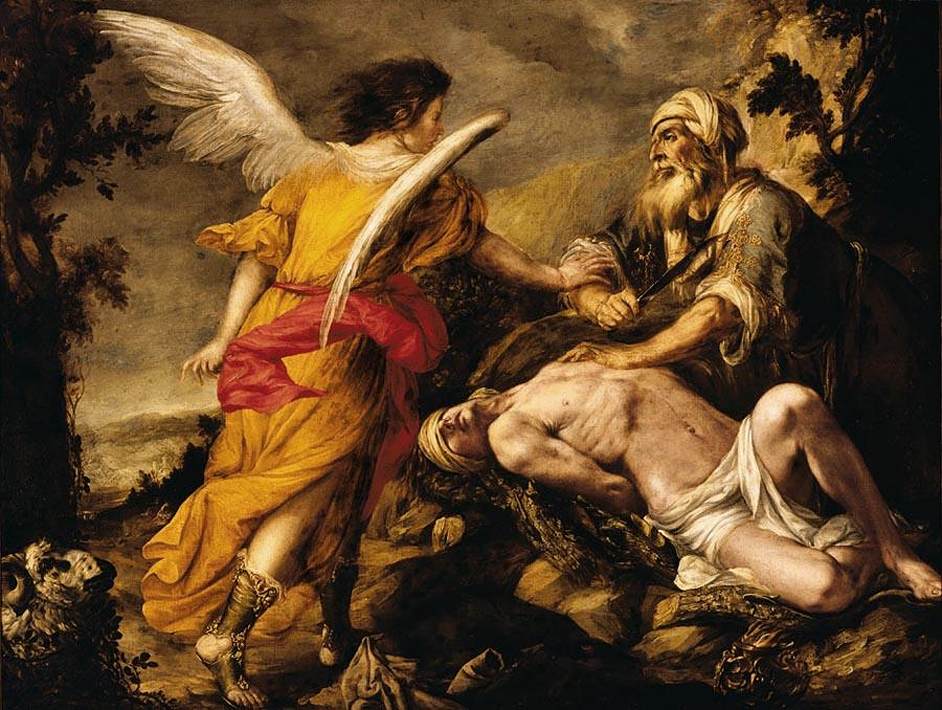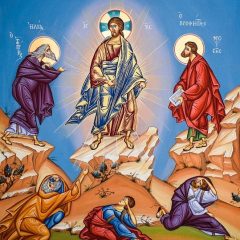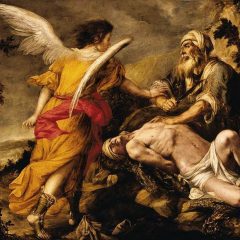Abraham
Discerning The True Will Of God

2nd Sunday Of Lent – Year B
Fr. Mark Gatto
Date Preached: Februay 28, 2021
What we think God wants is not always what God actually wants. We need to be very careful in thinking that we know what God wills. We need to be humble and discern carefully. Because in history there have been many times that in the name of religion or in the name of God, people have done very terrible things. There is a saying that most people have just enough religion to hate and not enough religion to love.
The story of Abraham and Isaac is an example of how it is possible to misunderstand what God wills. Abraham is told to sacrifice his only son Isaac. Was this ever the actual will of God? Surely not. Though there were certain tribes and groups in that area of the world at that time who did sacrifice human beings in the name of God, as a form of worship. Abraham comes to a new understanding, a development in his discernment of God’s will. Abraham is known as the father of faith, he was ready to surrender everything for the will of God. But, he came to understand in a deeper way the will of God. Certainly not a God of senseless sacrifices or human suffering in God’s name.
The Transfiguration was a spiritual experience that would allow the disciples, Peter, James, John to trust when the crucifixion and death of Jesus took place. The Transfiguration would allow them to see beyond the surface of this terrible event. In fact, they probably only understood the meaning of this Transfiguration experience later on, some time after the death and resurrection of Jesus.
All of us need Transfiguration like experiences to allow us to discern more carefully the true will of God. To allow us to see beyond the surface of the events and circumstances of our life. When we experience struggles, failures, suffering and ultimately the reality of death, we need to see deeper, below the surface, to the will of God.
A Transfiguration experience may be when we spend time alone with God, away from the distractions of daily life. A time of silence, solitude and prayer. This opens our hearts and minds to see below the surface of the events in our life. This is so important if we are to understand in a deeper way when we experience struggles in life. Then we are able to recognize God calling us to get back up, not to give in to despair. To see the light beyond the dark moment. Of course, the ultimate darkness is the reality of death. But, the will of God is for our salvation, offering us new life in the resurrection.
Pope Francis, in his new book called Let Us Dream, reflects on what this Covid crisis means to us today and how we can move forward in a new and better way after this. In it he speaks about how the church needs to discern the “signs of the times”, to see how the Spirit is at work in our world. We have to interpret and pray over the events in our lives in the light of the Gospel. We should all be reflecting and praying over our experience in this Covid time. What can we learn from this, what grace is offered in this moment, how is God calling us to respond in this unique situation?
Often what we think is the will of God, what we think God wants, is not the will of God at all. We need to discern carefully and humbly. We need to go up the mountain in silence and solitude to allow God to open our hearts and minds. There we will be able to see more clearly the surprising and unexpected ways of God. We will be able to see even in the dark moments of our lives, the blessings that God desires for us.
Sacrifice Of Isaac – Fr. David

Second Sunday of Lent – Year B
Fr. David Reitzel
Preached: Feb 25 2018

